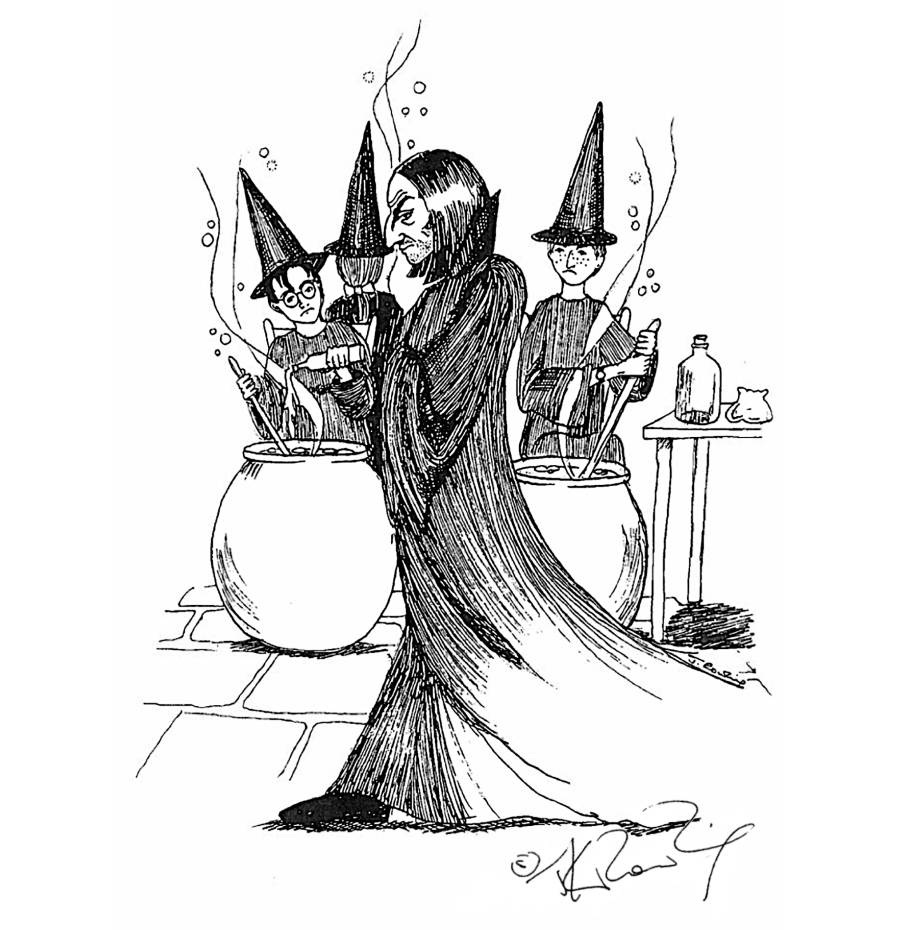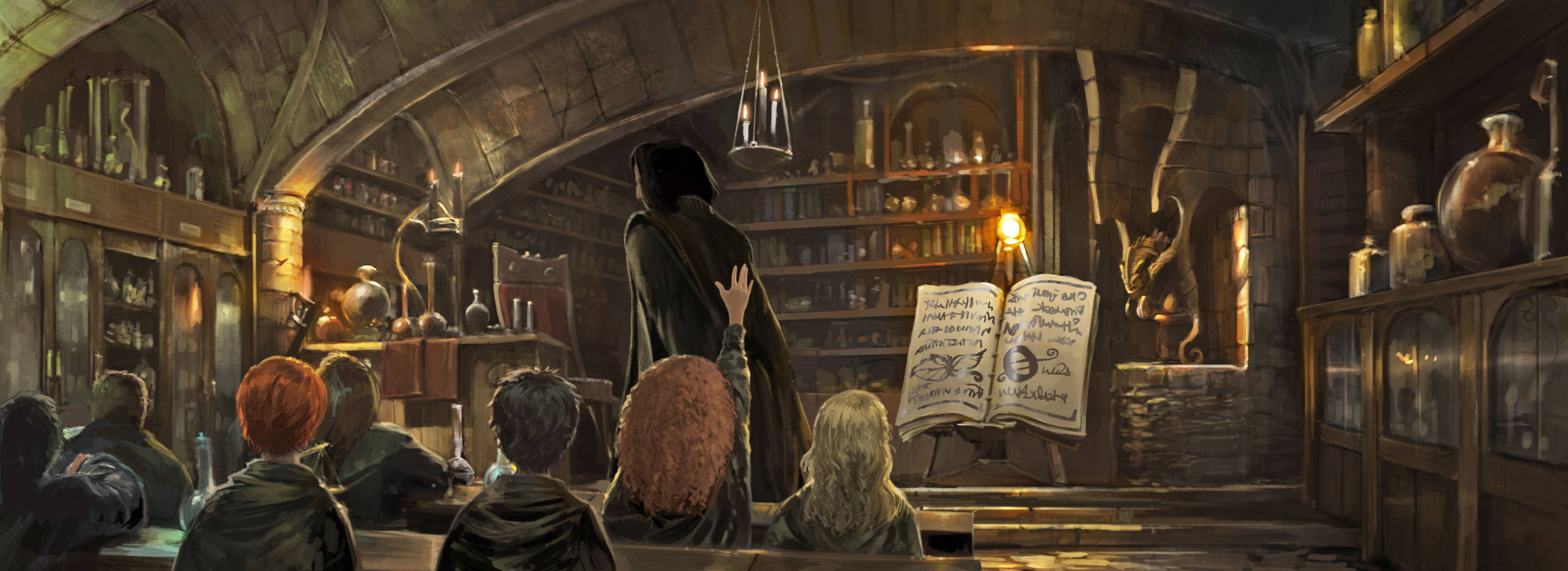There is always some element of wandwork necessary to make a potion (merely adding dead flies and asphodel to a pot hanging over a fire will give you nothing but nasty-tasting, not to mention poisonous, soup).
Some potions duplicate the effects of spells and charms, but a few (for instance, the Polyjuice Potion, and Felix Felicis) have effects impossible to achieve any other way. Generally speaking, witches and wizards favour whichever method they find easiest, or most satisfying, to produce their chosen end.
Potions are not for the impatient, but their effects are usually difficult to undo by any but another skilled potioneer. This branch of magic carries a certain mystique and therefore status. There is also the dark cachet of handling substances that are highly dangerous. The popular idea of a Potions expert within the wizarding community is of a brooding, slow-burning personality: Snape, in fact, conforms perfectly to the stereotype.

Author’s note
Chemistry was my least favourite subject at school, and I gave it up as soon as I could. Naturally, when I was trying to decide which subject Harry’s arch-enemy, Severus Snape, should teach, it had to be the wizarding equivalent. This makes it all the stranger that I found Snape’s introduction to his subject quite compelling (‘I can teach you how to bottle fame, brew glory, even stopper death...’), apparently part of me found Potions quite as interesting as Snape did; and indeed I always enjoyed creating potions in the books, and researching ingredients for them. Many of the components of the various draughts and libations that Harry creates for Snape exist (or were once believed to exist) and have (or were believed to have) the properties I gave them. Dittany, for instance, really does have healing properties (it is an anti-inflammatory, although I would not advise Splinching yourself to test it); a bezoar really is a mass taken from the stomach of an animal, and it really was once believed that drinking water in which a bezoar was placed could cure you of poisoning.




